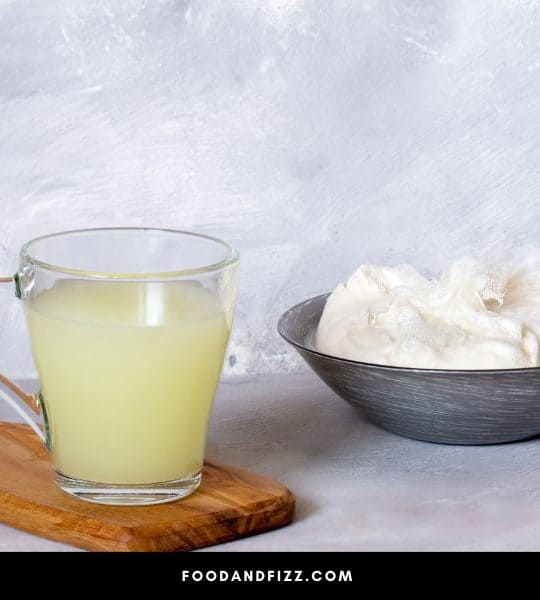Lemon juice is a common ingredient in recipes, and it can be used to add flavor or adjust the acidity of a dish. It’s also sometimes used as a substitute for vinegar.
But did you know that lemon juice can also be used to curdle heavy cream? In this blog post, we’ll teach you about what happens chemically between lemon juice and heavy cream, how to add lemon juice to cream properly, and some other helpful tips.
Will Lemon Juice Curdle Heavy Cream?
Lemon juice is considered an acid and will make heavy cream curdle. Acids make heavy cream curdle because they cause proteins in the cream to unravel and form clumps. The acid in lemon juice is particularly effective at causing this reaction, which is why it’s often used to curdle heavy cream.
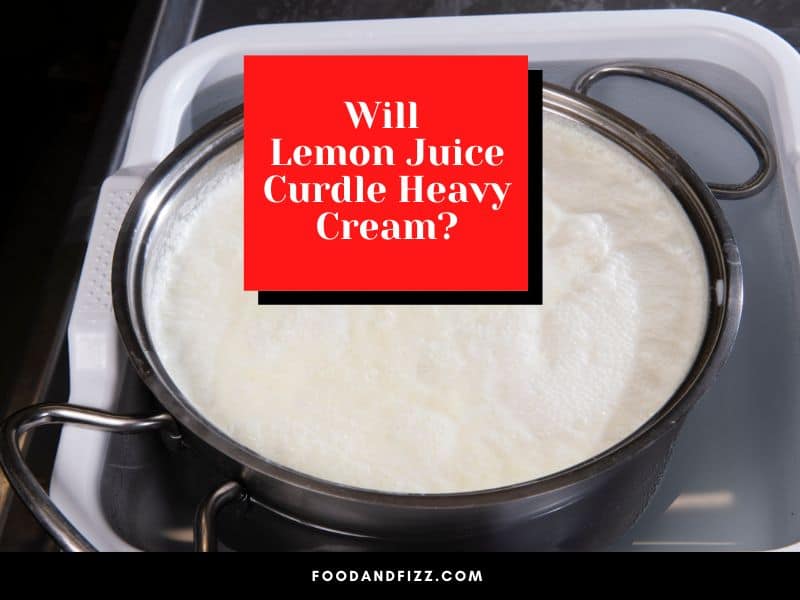
How To Add Lemon to Cream Without Curdling
Although lemon juice will often make heavy cream curdle, there are ways to add it without causing the cream to form clumps.
One way is to raise the pH level of the lemon juice, so it doesn’t cause such a severe reaction with the milk. The pH level measures how acidic or basic a substance is.
Heavy cream will tend to start curdling around a pH level of 4.6. You can raise the pH level of lemon juice by adding baking soda. Start off slow and test the pH level using test strips until you reach the desired level.
Another way to add lemon juice without curdling cream is to add it to cold milk. Temperature plays a big role in how fast milk will curdle. Hot milk will react very quickly when you put lemon juice into it but try it when it is cold, and it’ll be some time before you see signs of curdling.
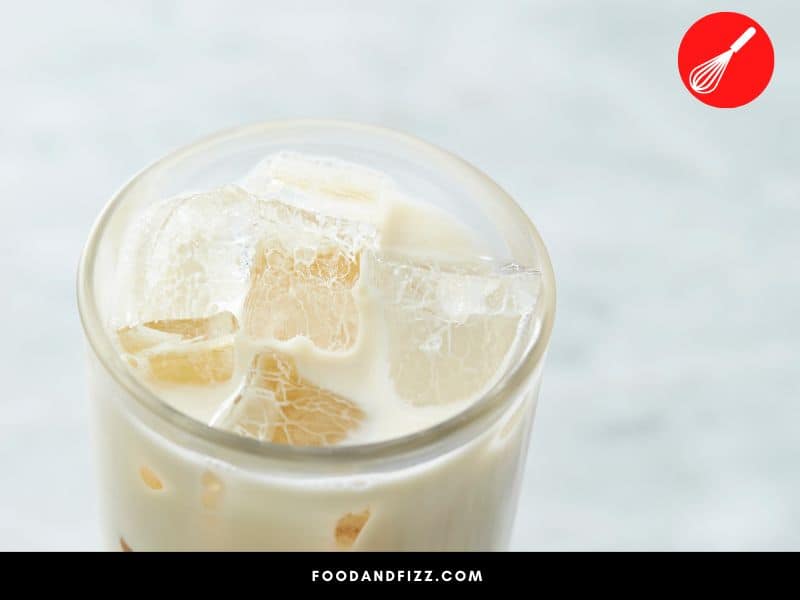
Will Lemon Juice Curdle Mascarpone?
Mascarpone is a type of cheese that originates from Italy, and it only has two ingredients, heavy cream and citric or tartaric acid.
You actually make mascarpone cheese by heating up the heavy cream and then adding lemon juice or other citric juice to the cream. The process will thicken the cream and create a delicious ingredient that is similar to cream cheese or ricotta cheese.
So, yes, lemon juice will make mascarpone curdle enough to create a wonderfully light-tasting cheese.
People will often take mascarpone cheese and combine it with eggs and sugar to create mascarpone cream. This salivating flavor is often added to a tiramisu cake or toppings for fruit and coffee.
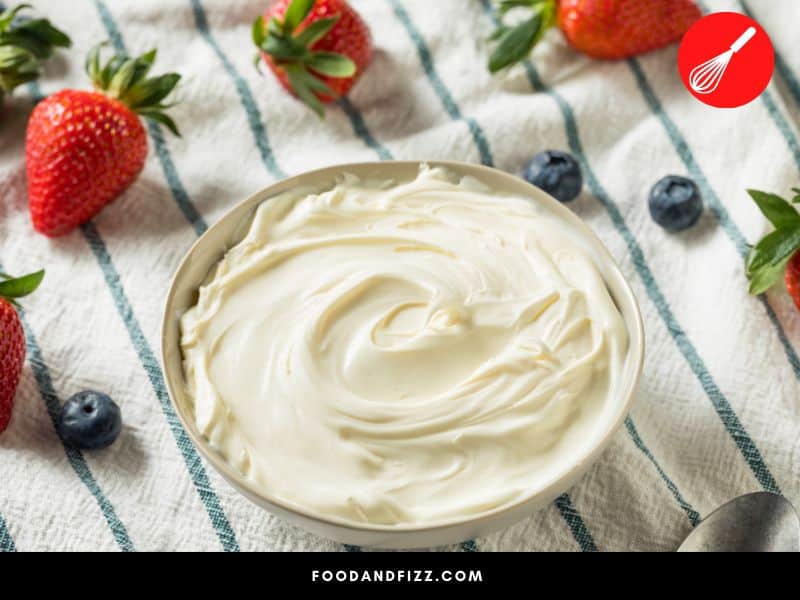
Will Lemon Juice Curdle Cream Cheese?
When you’re making cream cheese at home, you’ll need to add lemon juice to create the dish. Since adding an acidic ingredient to your cream cheese could cause it to clump up, you’ll want to make sure you’re following a recipe that shows you the steps to take to prevent any curdling.
Cream cheese is made by heating milk and then adding an acid to it. The acid curdles the proteins in the milk and creates a thick, creamy texture. Adding lemon juice will not make cream cheese curdle if you’re following a recipe that includes the proper steps and precautions.
Can I Add Lemon Extract to Whipped Cream?
Just like with any dairy-based ingredient, you can add lemon juice as long as you follow the proper instructions. Lemon juice is an acidic element that will break up the proteins within the dairy product and cause it to clump up and become unhomogenized.
If you’d like to add lemon extract to whipped cream, you have to be careful not to add too much. A general rule is to start with half a teaspoon and then increase the amount until you reach the desired flavor. Adding lemon extract will not curdle your whipped cream as long as you don’t add too much.
You also want to be careful of overbeating your whipped cream because it can easily become a butter-like texture. You want to whip it until soft peaks just start to form.
How To Curdle Heavy Cream
There are several ways you can curdle heavy cream. The most common way is to add an acidic ingredient, like lemon juice, to the cream. Following a specific recipe will help you add the lemon juice correctly to get the desired level of curdling you want.
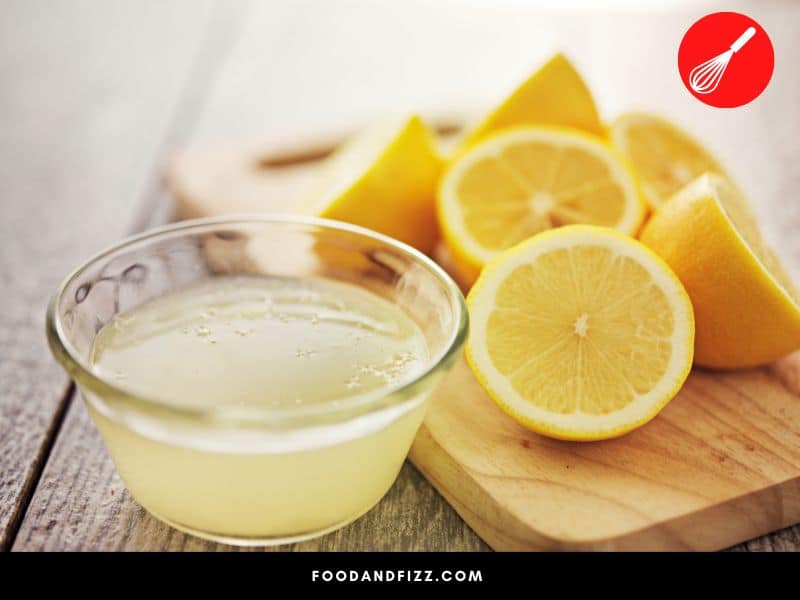
You can also curdle heavy cream by adding it to hot food like soup or stew. Temperatures have a big effect on heavy cream curdling, so if you add the heavy cream as soon as you are done cooking the dish and while it’s still piping hot, there is a greater chance of curdling.
High salt content is another reason why heavy cream can curdle. When you are making a dish that requires heavy cream, make sure to taste the dish before adding salt. You might need to adjust the amount of salt you use or not add any at all.
Is It Safe to Eat Curdled Heavy Cream?
If a heavy cream starts to curdle without you adding any extra ingredients, it will not be safe to eat. This happens when the milk starts to spoil because of bacteria. The proteins in the milk will start to break down and form clumps.
If you’ve added an acidic ingredient to curdle your heavy cream on purpose, it will still be safe to eat. This is because the curdling process is controlled, and the milk has not gone bad, it is simply going through a chemical reaction.
This can often happen when heavy cream is added to very hot coffee or into a bowl of hot soup. The cream goes through an immediate chemical reaction, but bacteria has not started to form in the cream itself.
Frequently Asked Questions to Will Lemon Juice Curdle Heavy Cream?
Will Lemon Juice Curdle a Cream Soup?
Adding lemon juice to a cream soup will not cause it to curdle. The acid in the lemon juice will help thicken the soup.
How Long Does It Take for Milk to Curdle with Lemon Juice?
Curdling will usually happen within a few minutes if the lemon juice is added correctly. You may even see signs of curdling immediately after adding the lemon juice, depending on the temperature of the milk.
Does Lemon Zest Make Cream Curdle?
Adding lemon zest is not likely to cause the cream to curdle. There is not enough of the acidic ingredient added to cause a chemical reaction.
In Conclusion: Mixing Heavy Cream and Lemon Juice
Lemon juice, being an acid, will usually cause heavy cream to curdle. However, there are ways to add lemon juice to heavy cream without curling it.
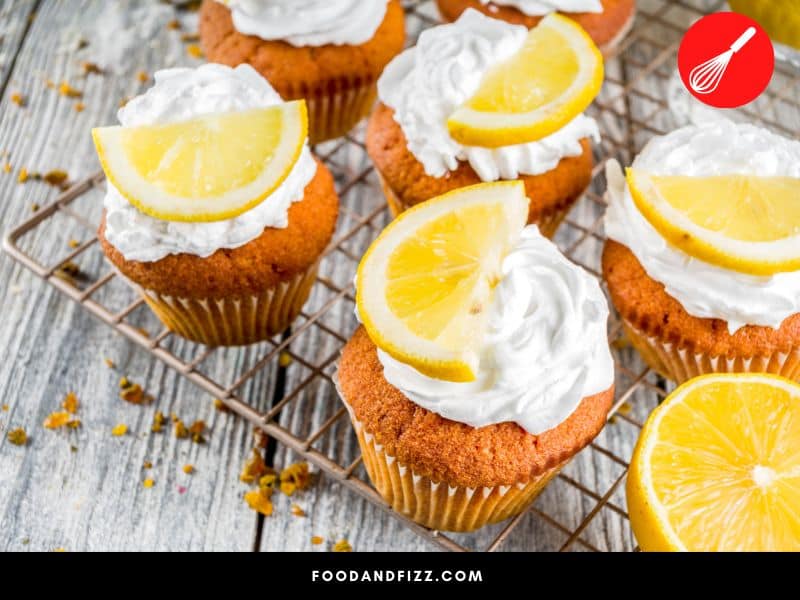
As long as you follow the steps and the ingredients carefully, you should be able to have delicious lemon-inspired recipes without getting the wrong texture and chemical reaction.

